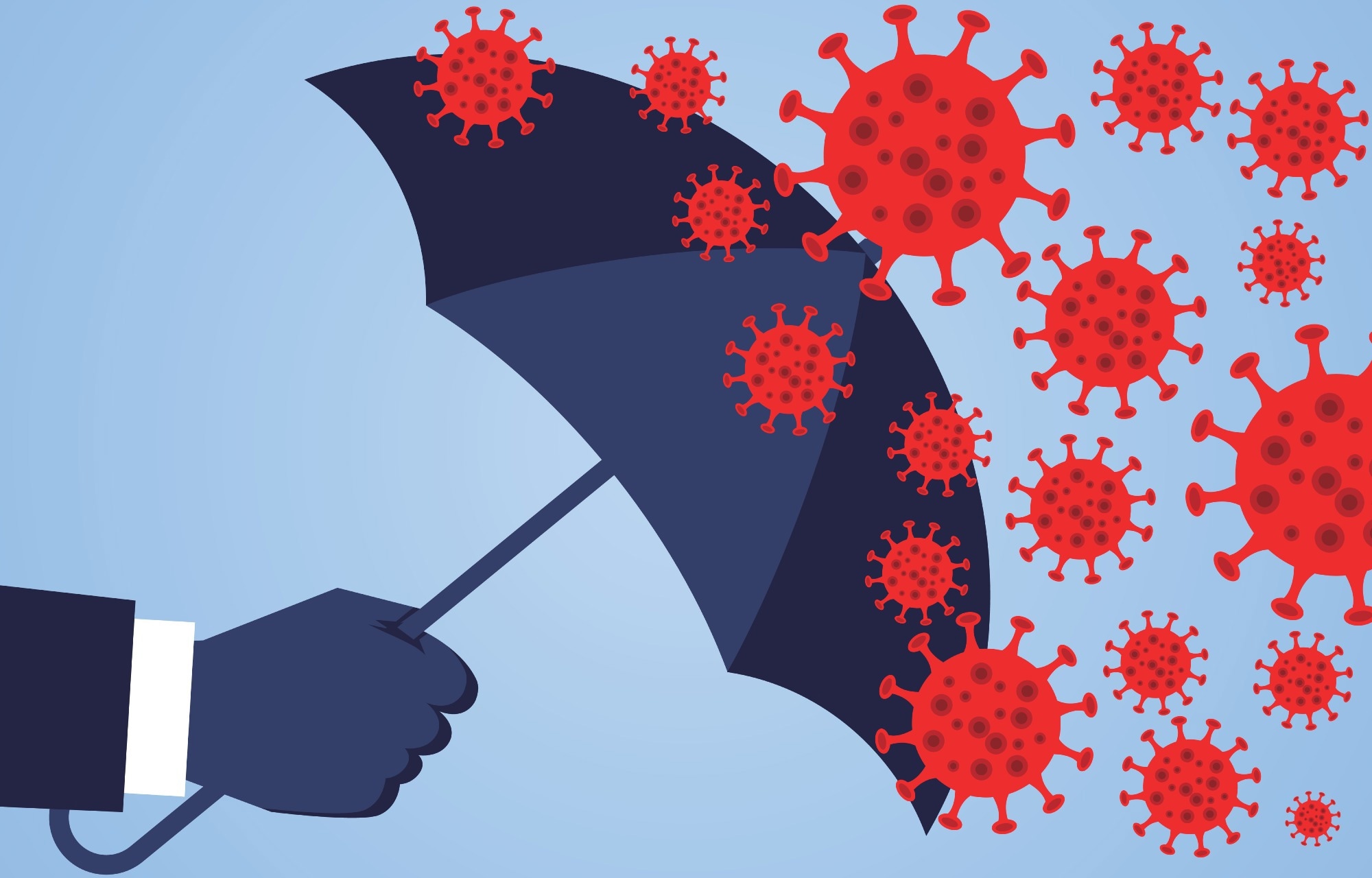COVID-19 risk: natural immunity vs. vaccine induced immunity

In a recent study posted to the SSRN* preprint server, researchers evaluated the immune protection conferred by previous severe acute respiratory syndrome coronavirus 2 (SARS-CoV-2) infection and/or coronavirus disease 2019 (COVID-19) vaccines (hybrid immunity) against reinfection.


Background
The continual increase in coronavirus disease 2019 (COVID-19) vaccinations and SARS-CoV-2 infections warrants further research to evaluate the extent of humoral protection conferred by prior SARS-CoV-2 infections in comparison to and in combination with vaccine-induced immunity.
The authors searched the PubMed Central database between 1 March 2020 and 1 June 2022 for randomized controlled trials (RCTs) and other studies assessing protection against SARS-CoV-2 reinfection.
From >100 initially eligible records, 12 studies evaluating COVID-19 vaccine efficacy, and 10 records on humoral immunity, were reviewed. Most studies were observational, single-center type, or reported findings from previously conducted RCTs.
Moreover, the studies evaluated baseline SARS-CoV-2 exposure utilizing different techniques, including self-documented data and anti-SARS-CoV-2 antibody titers. Phase three efficacy trials reported that prior infection and/or vaccines conferred immunity; however, the immunity varied in extent; and follow-up durations and causative variants of concern (VOC) differed.
About the study
In the present post-hoc cross-protocol study, researchers comprehensively evaluated the immune protection conferred by prior SARS-CoV-2 infection alone or in combination with COVID-19 vaccines.
Individual-level data were obtained from United States (US) government-funded harmonized COVID-19 vaccine randomized controlled trials (RCTs) evaluating Janssen’s Ad26.COV2.S, Moderna’s mRNA-1273, Novovax’s NVX-CoV2373, and AstraZeneca’s AZD1222 vaccines.
The study participants from the four trials (n=134,935) were allotted into four groups as follows: no prior infection/placebo (n=52,045); prior infection/placebo (n=3,367); no prior infection/COVID-19 vaccine (n=71,622); and prior infection/COVID-19 vaccine (4,272) groups.
The prime study outcome was reverse transcription polymerase chain reaction (RT-PCR)-confirmed SARS-CoV-2 infections occurring ≥2.0 weeks following the single Janssen vaccination, ≥2.0 weeks following the second Moderna vaccination, ≥15.0 days following the second AstraZeneca vaccination, and ≥1.0 weeks following the second Novavax vaccination.
The crude and adjusted measures of the COVID-19 vaccines’ efficacy were calculated, including the adjusted risk ratio (aRR).
Data adjustments were made for race, sex, age, ethnicity, comorbidities, and SARS-CoV-2 exposure risk at baseline. All trials identified individuals with prior COVID-19 history using SARS-CoV-2 nucleocapsid (N) protein-based immunoassays.
Individuals were recruited between 27 July 2020 (Moderna) and 27 December 2020 (Novavax) and followed up till blinded phase termination or crossover commencement (Moderna: 31 March 2021; Novavax: 1 June 2021; Janssen: 17 July 2021; AstraZeneca: 30 July 2021). The team excluded individuals with missing RT-PCR and serological data.
Results
In the follow-up period, the incidence of symptomatic SARS-CoV-2 infection was 1,600 among Janssen vaccinees, 810 among Moderna vaccinees, 326 among AstraZeneca vaccinees, and 89 among Novavax vaccinees.
The prior infection/placebo group individuals showed a lowering of SARS-CoV-2 infection risk by 93.0%, in comparison to the no prior infection/placebo group (aRR 0.07). Contrastingly, Janssen vaccinees in the prior infection/placebo group had a lower risk of COVID-19 than individuals in the no prior infection/Janssen vaccine group (aRR 0.13).
Among one-dose Janssen vaccinees, hybrid immunity provided greater immune protection compared to vaccinations alone (adjusted risk ratio 0.03). Too few SARS-CoV-2 infections occurred in other vaccine trials to infer data by comparing hybrid immune protection to that conferred by vaccination.
Prior infection and/or vaccination conferred near-complete immunity against COVID-19 severity. Prior infection, hybrid-type immune protection, and double-dose vaccinations significantly protected against severe and symptomatic Delta VOC infections. Therefore, COVID-19 vaccination remains the safest strategy for immune protection as a proxy for prior infection.
Uninfected individuals who received any COVID-19 vaccine showed a 54% to 92% lower relative risk of SARS-CoV-2 infection than the no prior infection/placebo group individuals. The sensitivity analysis performed by excluding individuals who were seronegative but PCR-positive at study initiation yielded similar results.
Further, less than 0.1% of the 71,835 vaccinees and none of the 7,639 individuals with prior infection or hybrid immunity experienced severe SARS-CoV-2 infection. Contrastingly, 0.60% of 52,045 individuals in the no prior infection/placebo group developed severe SARS-CoV-2 infections.
Conclusions
Overall, the study findings showed that previous SARS-CoV-2 infections among placebo recipients decreased COVID-19 risks by 93%. Hybrid immunity seemed to be highly protective, equivalent to two doses of COVID-19 vaccines.
In the single-dose Janssen clinical trial, prior infection alone or combined with COVID-19 vaccination conferred greater immune protection than one-dose vaccination among SARS-CoV-2-naive individuals.
Asymptomatic or mild SARS-CoV-2 infection during the initial COVID-19 wave significantly protected against COVID-19 severity outcomes and reinfection for more than three to six months during the SARS-CoV-2 Delta VOC predominance.
However, immune protection is likely to vary based on the dominant VOC, and previous infection without COVID-19 vaccination might not provide sufficient immunity against all SARS-CoV-2 VOCs.

- Preliminary scientific report. Rick, A. et al. (2023) "Risk of COVID-19 after Natural Infection or Vaccination". SSRN.,doi: 10.2139/ssrn.4425340. https://papers.ssrn.com/sol3/papers.cfm?abstract_id=4425340
Posted in: Medical Science News | Medical Research News | Disease/Infection News | Healthcare News
Tags: Antibody, Clinical Trial, Coronavirus, Coronavirus Disease COVID-19, covid-19, Efficacy, immunity, Immunoassays, Placebo, Polymerase, Polymerase Chain Reaction, Protein, Research, Respiratory, SARS, SARS-CoV-2, Severe Acute Respiratory, Severe Acute Respiratory Syndrome, Syndrome, Transcription, Vaccine

Written by
Pooja Toshniwal Paharia
Dr. based clinical-radiological diagnosis and management of oral lesions and conditions and associated maxillofacial disorders.
Source: Read Full Article